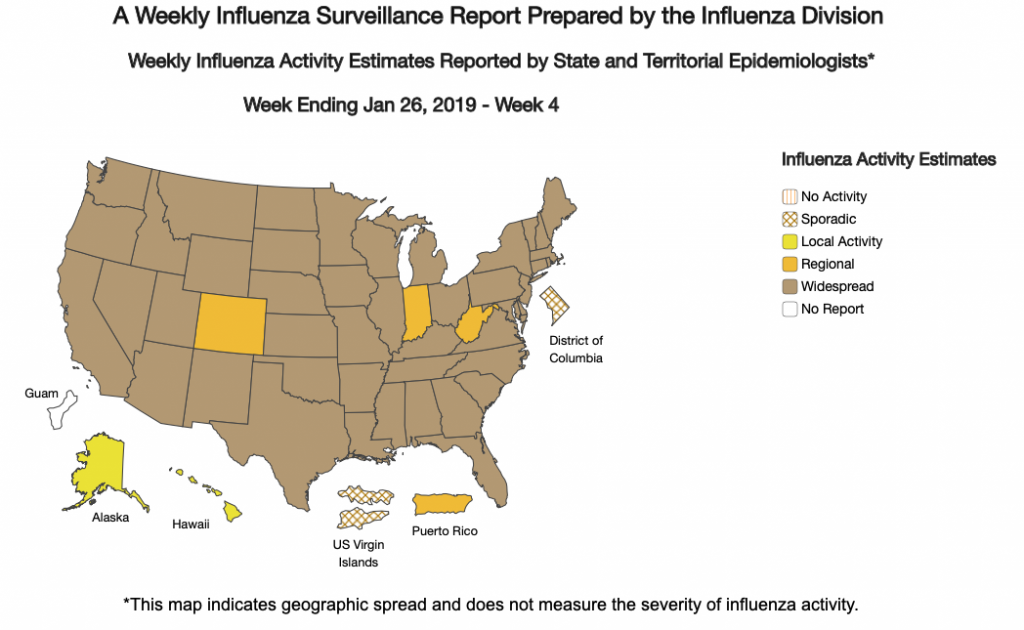Recent reports from the Health Department indicate that influenza rates are on the rise in Travis County and throughout the state. Though not as severe of a flu season this year as compared to last, it is still a cause for concern as we head into what has historically been peak flu season. If you have not had the flu shot yet, it is not too late as flu season can run through mid-March.
The flu shot is formulated to protect against Type A, Type B and H1N1, also known as Swine flu. According to the CDC, rates of prevention with the flu shot are 6-10% higher than last year. There is data from Rice University that the overall protection rate may drop as the most common strains of the virus may have mutated. Time will tell on this, but so far this season, clinically I’ve observed flu cases in our practice to be down.
Who is at greatest risk?
Those at highest risk for flu complications are the very young, elderly, pregnant women, and those with chronic disease like asthma, coronary artery disease and diabetes. There have been studies showing that getting a flu shot reduces cardiovascular mortality in those that have established heart disease.
How can you protect yourself from getting the flu?
- Be sure to get your flu shot soon.

- 80% of infectious disease are transmitted by touch, so wash your hands frequently. This is effective in preventing germs from spreading to surfaces and ourselves. The length of time you wash is important; the CDC recommends washing with soap and water for 20 seconds while scrubbing the palms, fingers and under the nails.
- Keep surfaces clean by wiping down counter tops, phone, computers and remote controls with a disinfectant. Also wash sheets, blankets and towels with high heat and color safe bleach.
- When possible, avoid others who are sick. The flu virus can be contagious for one day prior to showing symptoms up to seven days after symptoms appear. Avoid close contact with people if you know they are ill. If you are ill, sleep in a separate room from your partner, and avoid cooking meals and washing dishes.
- Sneeze into your elbow, not your hand!
- A healthy lifestyle is also important. Get plenty of sleep. Eat dark leafy greens and get plenty of exercise. All three of these have been shown to strengthen the immune system and one’s ability to fight infection.
What to do if you get the flu?
Despite best practices, if you do develop flu like symptoms (sudden onset of fever, chills, cough, headache and body aches), stay home from work or school and get plenty of rest, drink a lot of water, and do not smoke or drink alcohol. If diagnosed within the first 48 hours, influenza can be treated. There are two meds available. Tamiflu, which is taken for 5 days, and a new drug, Xofluza, which is taken as 2 pills in a single dose.

